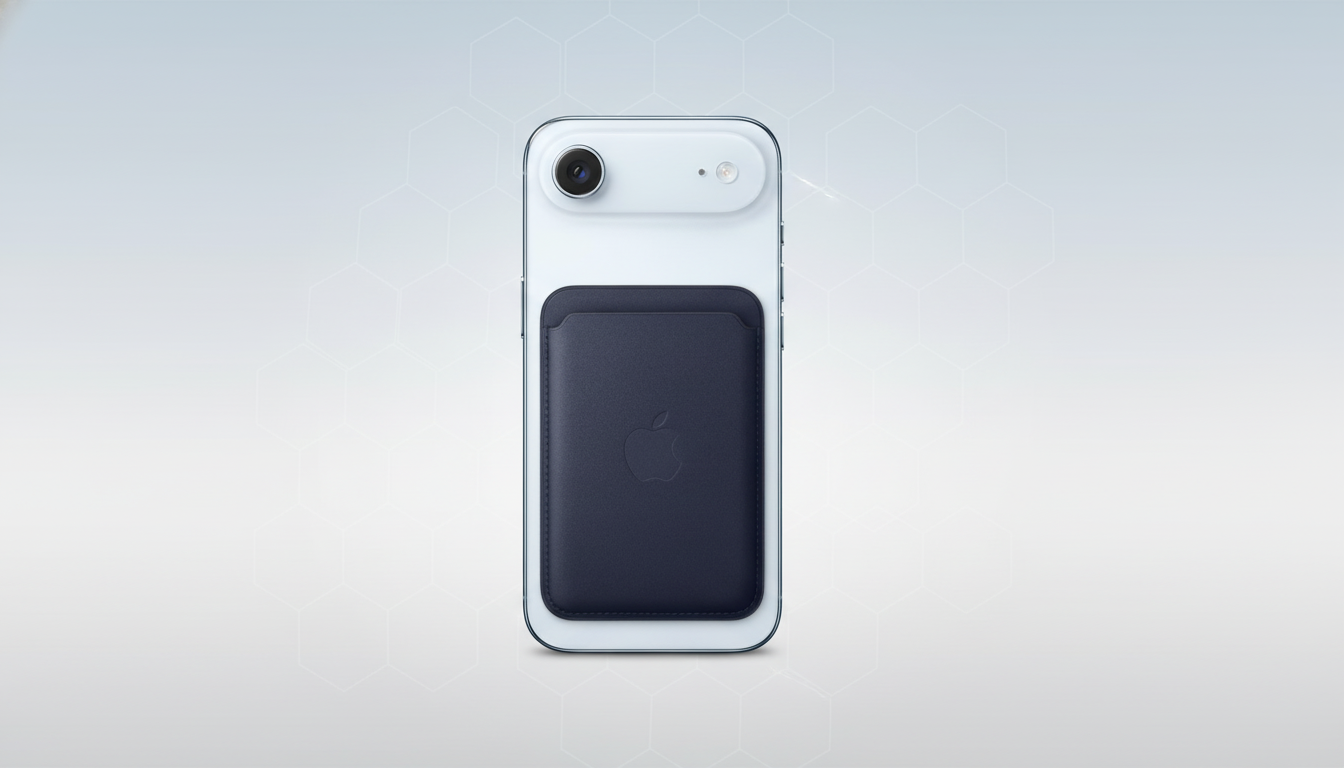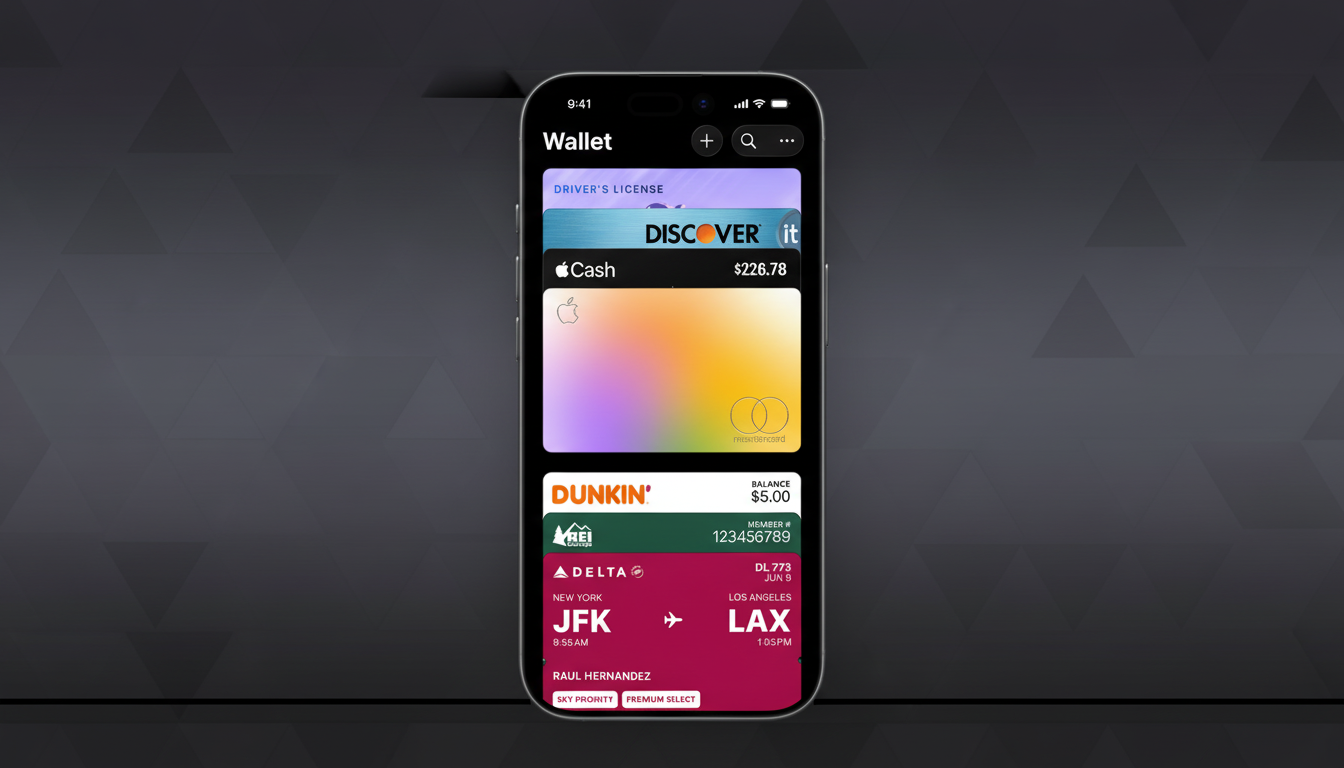West Virginia has turned on support for digital driver’s licenses and state IDs in Apple Wallet, marking the latest extension of a facility that allows residents to demonstrate ID via an iPhone or Apple Watch instead of using their cards at certain checkpoints. The announcement by Governor Patrick Morrisey of the rollout allows West Virginians to use the REAL ID at Transportation Security Administration (TSA) lanes and is laying a foundation for increased in-state acceptance.
Apple’s digital ID program is continuing to increase in scale, and West Virginia joining the platform signifies increasing comfort among state motor vehicle agencies, as well as between federal screeners, that mobile credentials are ready for widespread use — albeit with important clarifications on where they’re actually accepted today.

How Apple Wallet digital IDs work at TSA airport checkpoints
Residents can add a driver’s license or state-issued ID by going to Wallet in the app, tapping the plus sign to add, selecting Driver’s License or State ID and then choosing West Virginia before scanning their physical card. A fast face or fingerprint match is done during setup to authenticate the holder’s identity.
At TSA checkpoints that accept mobile IDs, travelers double-click the iPhone or Apple Watch side button, select their ID and hold the display near a reader. TSA’s Credential Authentication Technology readers only ask for necessary information, and the traveler approves sharing by facial or touch gesture. Digital IDs are now accepted at more than 250 airport checkpoints nationwide, the TSA says, including Charleston Yeager and Huntington Tri-State in West Virginia.
Because acceptance is not guaranteed everywhere, the state recommends keeping a physical ID as a backup. That’s in line with TSA guidance, which considers mobile IDs as a convenience at participating lanes rather than a wholesale replacement.
Where West Virginia fits in the Apple Wallet ID rollout
West Virginia will become the 12th state to support IDs in Apple Wallet, joining Arizona, California, Colorado, Georgia, Hawaii, Iowa, Maryland, New Mexico and the Northern Mariana Islands (where it was technically a pilot), North Dakota and Wyoming.
The state also plans to make its digital IDs available as mobile IDs in Google Wallet, expanding access beyond iPhone users and reflecting a more inclusive, cross-platform approach many DMVs are adopting now.

The timing also reflects a growing momentum behind digital credentials. The American Association of Motor Vehicle Administrators has instructed states on standards and issuance, while TSA has been testing readers that can verify ISO/IEC 18013-5-compliant mobile driver’s licenses. At a time when nearly 90% of U.S. adults own smartphones, according to the Pew Research Center, states have seen their practical utility for residents who increasingly expect to wave and pay.
Security, privacy, and standards behind mobile IDs in Wallet
Apple Wallet keeps IDs in the Secure Enclave and on-device encryption and biometric authentication manage access. An ID is the only information shared when presented and the only attributes (e.g., name, date of birth) requested. Users see what’s being transmitted and must approve it before proceeding. If an iPhone gets lost, Find My can put the device in Lost Mode or erase it remotely; the DMV can also disable your credentials — just as you would be able to cancel a physical card.
West Virginia’s offering complies with the ISO/IEC 18013-5 standard that powers mobile driver’s licenses, a framework TSA and state agencies have embraced to ensure interoperability. That common standard is critical to national acceptance and to future uses beyond airports, like age verification at stores or secure access to government services.
What West Virginia residents can expect next for digital IDs
State officials say they are working to expand acceptance to a variety of retailers and organizations, which usually involves training staff, updating point-of-sale systems and certifying age-only or attribute-only checks that protect privacy. Law enforcement adoption is typically a bit slower, since roadside workflows require IDs to be verified offline and policies updated.
Apple has also indicated that it will extend Wallet’s identity features, with a hat tip to future support for passports. The addition of Google Wallet support in West Virginia means that mobile IDs will be available to more residents and businesses can now provide a standardized acceptance experience across platforms.
Bottom line: West Virginia’s digital IDs are flier-friendly at participating TSA lanes now, and they will increasingly be integrated into more everyday transactions. For now, you’re going to have to bring your physical card with you wherever you go, but in the long run expect the phone that’s already got access to every bit of your digital life and can do things like grant entry into a music festival based on a recording of who knows what sound it made last summer at noon to be your default form of identification.

